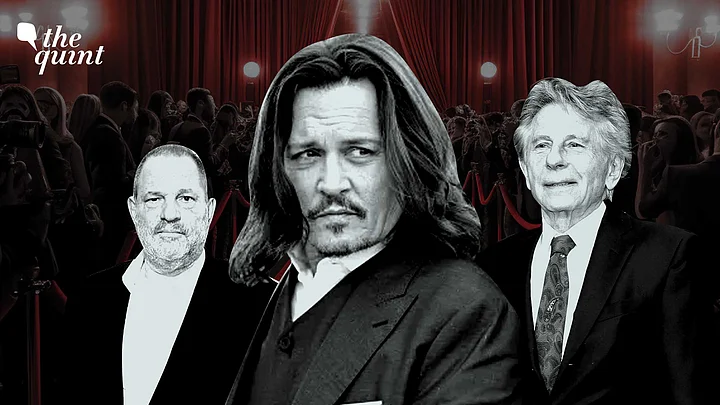The Cannes Film Festival kicked off earlier this week with the historical drama Jeanne du Barry, Johnny Depp’s new film and comeback project after his infamous and much publicised defamation trial last year. Depp wasn’t just welcomed back to the fold by his peers with a pat on the back and a few warm handshakes; his film got a seven-minute standing ovation after its premiere on 16 May at what is considered one of the Big Five festivals in the world.
As tears welled up in his eyes, the ageing actor told the press that this wasn’t really a comeback because “I never went anywhere.”
If there’s one thing women around the world have learnt in the post #MeToo world is that rich, powerful abusers rarely go away.
The Venice Film Festival, in 2019, selected Roman Polanski’s An Officer and a Spy for competition and gave it the Grand Jury Prize. This is a man who pleaded guilty in 1977 to having unlawful sexual intercourse with a 13-year-old girl. Polanski went to prison for all of 42 days, after which he’s been living as a fugitive for the last 45 years, mostly in France.
Last year, Venice even granted a posthumous premiere to Call of God, Kim Ki-duk’s final film. The Korean filmmaker had multiple allegations of sexual abuse pending against him when he died. Interestingly festivals in Tokyo and Busan, which were Kim’s home ground, passed on the film.
In most of these cases, the selection of films is usually defended by the organisers using the age-old argument of separating the art from the artist. And while this works as a general rule, it would seem bullheaded in the post #MeToo era.
More so because International Film Festivals have gained notoriety as being the favourite hunting grounds for some of the worst predators in the industry.
Italian actress Asia Argento created shockwaves at Cannes in 2018, when she revealed that she had been raped by Harvey Weinstein at the Cannes festival when she was just 21 years old.
Several other actresses subsequently spoke about Weinstein abusing them at Cannes, while Mira Sorvino recounted her terrible experience at Toronto International Film Festival (TIFF); Rose McGowan and Louisette Geiss spoke about the same happening to them at Sundance.
Weinstein might now be serving out a 23-year prison sentence, but the atmosphere at festivals continues to be one laden with toxicity. The secrecy that surrounds what goes on at these festivals is compounded by the indifferent attitude of the festival organisers to everything “apart from the art.”
Sometimes though, it’s what passes for art itself that is questionable.
In 2019, the Berlin Film Festival selected DAU. Natasha, a Russian film by Ilya Khrzhanovsky. Mostly unscripted, the film had thousands of non-professional actors dressed in Soviet clothing living on a set that was basically a replica of a Soviet-era research institute, with no access to mobile phones or any kind of modern amenities.
The film featured graphic scenes of violence against women, particularly Natasha the main character, and depicted real sex while intoxicated. In one particularly notorious scene, a Soviet security officer forces Natasha to insert a cognac bottle inside her.
The film raised questions about the ethics of how films are made, and Khrzhanovsky was later accused of harassment and creating an unsafe on-set environment for women. DAU went on to win the best cinematography award at the festival.
It’s not as if the #MeToo movement has had no effect on the industry as a whole, though. Festivals like Cannes now have sexual harassment hotlines while Berlin and TIFF enforce a code of conduct where ‘any acts of violence or abuse’ of any kind can get one booted.
There has also been a concerted effort towards achieving gender parity, at least as far as selecting directors go and to have more women on the executive boards and festival staff.
The 50/50 pledge which has now been signed by all major European and North American festivals requires festival organisers to make their selection process more transparent. The bigger North American festivals such as TIFF and Sundance have shown that they can be better with film selection over the past few years; though nothing seems to have changed with their European counterparts.
The problem that persists is the fact that most of these festivals are still run by men, and when the Artistic Director is a man, little will change as far as content selection goes.
When Carlo Chatrian, the artistic director of the Berlin film festival, justified his selection of DAU by saying that the actors in the film had denied abuse during a press conference, he was just doing what powerful men have done best through the ages—turning a blind eye to the sins of other powerful men.
